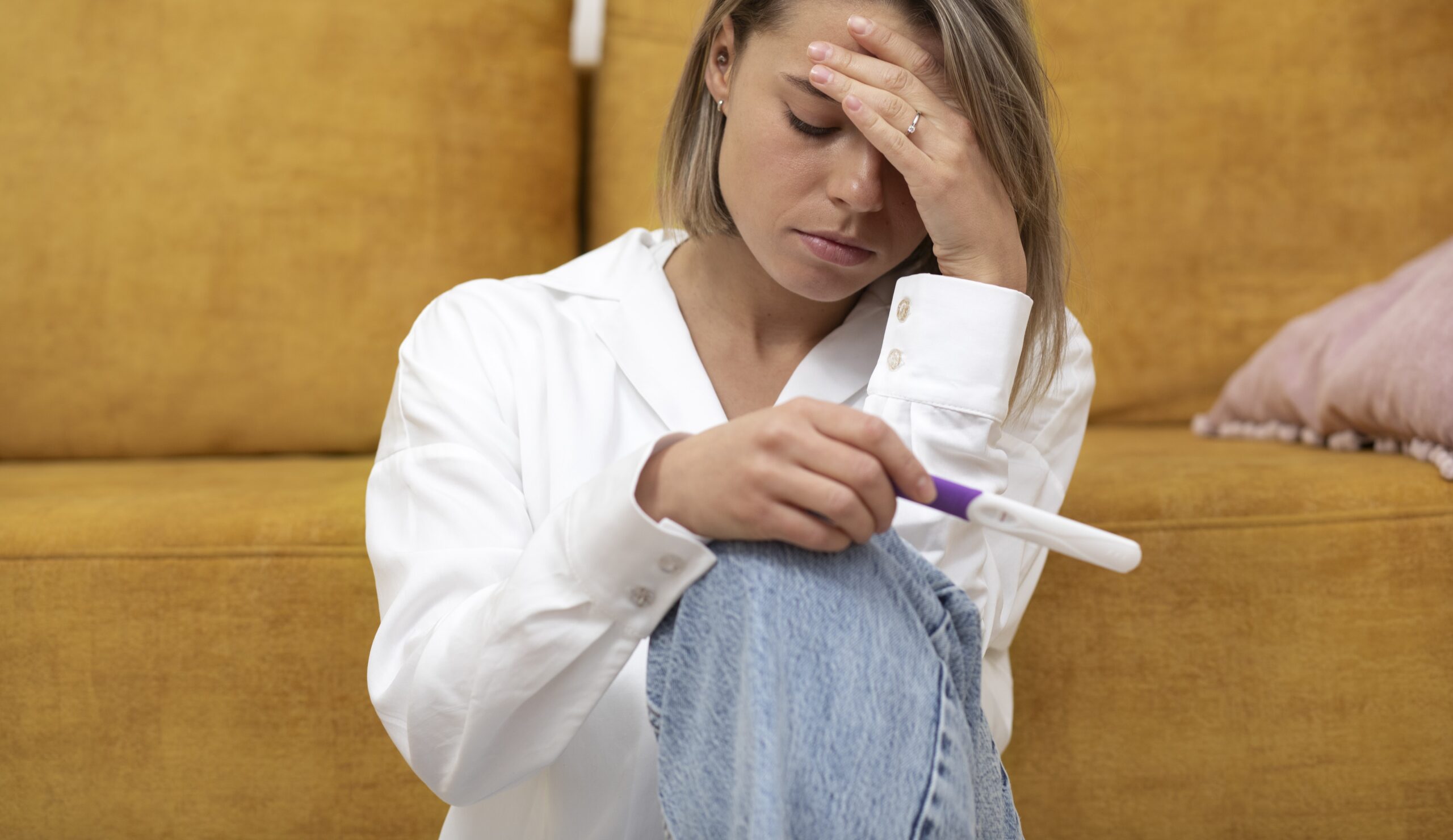Learn when to take a pregnancy test for the most accurate results. This guide explores the best timing, how tests work, and factors influencing results.
Discovering that you might be pregnant is an emotional experience that often leads to curiosity about when and how to confirm the news. Many women find themselves wondering, « When should I take a pregnancy test for the most accurate results? » The timing of your pregnancy test can greatly influence its accuracy, making it important to understand how these tests work, when to take them, and what factors might affect the outcome. In this guide, we’ll delve into the best times to take a pregnancy test and how to interpret the results.
Whether you are trying to conceive or simply concerned about a potential pregnancy, this comprehensive article will help you navigate the timing of pregnancy tests, understand the science behind them, and consider factors such as your menstrual cycle, ovulation, and early pregnancy symptoms.
How Pregnancy Tests Work
The Science Behind Pregnancy Tests
Pregnancy tests work by detecting the presence of a hormone known as human chorionic gonadotropin (hCG). This hormone is produced by the cells that form the placenta shortly after a fertilized egg implants in the uterus. As the embryo develops, hCG levels rise, and it is this hormone that a pregnancy test measures to determine whether or not you’re pregnant.
Understanding how hCG works is key to knowing when to take a pregnancy test. The levels of hCG in your body double every few days after implantation, but they may not be high enough to detect right away. This is why timing is so important when using a pregnancy test.
The earlier you test, the more likely you are to get a false negative, simply because your hCG levels may not have risen high enough for detection.
Types of Pregnancy Tests
There are two primary types of pregnancy tests: urine tests and blood tests. Both work by measuring the presence of hCG, but the methods and sensitivity levels differ.
- Home Pregnancy Tests (Urine Tests): These are the most common and can be done privately at home. They involve urinating on a stick or into a cup and then dipping the test into the urine. Results appear within a few minutes, usually showing as lines or digital readings indicating « pregnant » or « not pregnant. » Home pregnancy tests are designed to be convenient and accessible.
- Blood Tests: These are done at a doctor’s office and are more sensitive than urine tests. Blood tests can detect smaller amounts of hCG and may provide results sooner than a home test. There are two types of blood tests: qualitative tests (which give a simple yes/no answer) and quantitative tests (which measure the exact amount of hCG in the blood, providing more detailed information about pregnancy progression).
While blood tests are more accurate and can detect pregnancy earlier, home pregnancy tests are widely used for their convenience and ease.
When Is the Best Time to Take a Pregnancy Test?

Understanding Your Menstrual Cycle
The timing of your pregnancy test largely depends on your menstrual cycle. A standard menstrual cycle is typically divided into two phases: the follicular phase and the luteal phase. Ovulation occurs between these two phases, marking the moment when an egg is released from the ovary. If fertilization occurs, implantation happens several days later, and hCG begins to be produced.
To understand the best time to take a pregnancy test, you need to know when you ovulated and whether your period is late.
Waiting Until After a Missed Period
The most reliable time to take a pregnancy test is after you’ve missed your period. For most women, this occurs about two weeks after ovulation. By waiting until your period is due or late, you give your body enough time to build up detectable levels of hCG, increasing the likelihood of an accurate result.
- Why Waiting Is Important: Testing too early can result in a false negative because hCG levels may not yet be high enough for the test to detect. Even the most sensitive tests require some time after implantation to show a positive result.
- Signs to Look For: If your period is late and you’re experiencing early pregnancy symptoms like fatigue, nausea, or tender breasts, it may be a good time to take a test.
Testing Before a Missed Period
Some home pregnancy tests advertise that they can detect pregnancy several days before your missed period. These tests are more sensitive and can detect lower levels of hCG, but testing too early still carries the risk of a false negative.
- Pros of Early Testing: Early testing can provide answers for women who are anxious to know if they’re pregnant. For those actively trying to conceive, early detection can offer valuable information about whether pregnancy has occurred.
- Cons of Early Testing: The earlier you test, the higher the chance of a false negative, as hCG levels may not have risen enough to be detected. In addition, early testing can increase anxiety, especially if you get a negative result but continue to experience pregnancy symptoms.
Ultimately, testing after a missed period remains the most reliable way to get accurate results, though early testing can sometimes provide answers sooner.
How Long Should You Wait After Sex to Take a Pregnancy Test?
For women who are unsure of their ovulation date or cycle length, the question of when to take a pregnancy test after having unprotected sex can be tricky. In general, it takes time for the egg to be fertilized and implant in the uterus, at which point hCG production begins.
- Ovulation and Fertilization Timing: Ovulation typically occurs about halfway through your cycle, but this can vary. After ovulation, it may take several days for fertilization to occur, and then another several days for implantation.
- The Waiting Period: For most women, it is best to wait at least two weeks after having unprotected sex to take a pregnancy test. This allows enough time for implantation and hCG production, making it more likely that the test will yield accurate results.
Patience is key when waiting to take a pregnancy test, as testing too early may lead to an inaccurate result.
Early Pregnancy Symptoms That May Prompt Testing
Common Early Signs of Pregnancy
Before taking a pregnancy test, many women notice early pregnancy symptoms that prompt them to test. These symptoms are often caused by the hormonal changes that occur after implantation and can vary widely from woman to woman.
- Missed Period: One of the most common early signs of pregnancy is a missed period. For women with regular cycles, this can be the first indication that they might be pregnant.
- Morning Sickness: Nausea and vomiting, often referred to as morning sickness, can begin early in pregnancy. Though it’s called “morning” sickness, it can occur at any time of the day.
- Breast Changes: Hormonal changes during early pregnancy can cause your breasts to feel sore, swollen, or tender. Some women also notice their nipples becoming darker or more pronounced.
- Fatigue: Feeling unusually tired is a common early pregnancy symptom. The body begins working overtime to support the growing fetus, which can lead to exhaustion.
- Frequent Urination: Many women find that they need to urinate more often in early pregnancy due to the hormonal changes and increased blood flow to the kidneys.
- Food Cravings or Aversions: Pregnancy hormones can also cause changes in your sense of taste and smell, leading to cravings or aversions to certain foods.
These symptoms can be a sign that it’s time to take a pregnancy test, but they are not definitive proof of pregnancy. A test will give you a clearer answer.
How Accurate Are Pregnancy Tests?
Factors That Affect Test Accuracy
Pregnancy tests are highly accurate when used correctly, but several factors can influence the accuracy of the results.
- Testing Too Early: As mentioned earlier, testing before your body has produced enough hCG can result in a false negative. This is one of the most common reasons for inaccurate results.
- Diluted Urine: If you take a pregnancy test after drinking large amounts of water or other fluids, your urine may be diluted, which can lower the concentration of hCG and lead to a false negative. It’s best to take the test first thing in the morning when your urine is most concentrated.
- Expired Test: Using an expired pregnancy test can affect the accuracy of the results. Always check the expiration date on the packaging before using the test.
- User Error: Following the instructions on the pregnancy test carefully is crucial for getting an accurate result. Misreading the test or not allowing it enough time to develop can lead to an incorrect answer.
What to Do If You Get a False Negative
If you receive a negative result but still believe you might be pregnant, it’s important not to panic. False negatives can happen if you test too early or if your body hasn’t produced enough hCG yet. If your period still hasn’t started after a few days, take another test.
If you continue to receive negative results and are experiencing pregnancy symptoms, consider scheduling a blood test with your healthcare provider for a more definitive answer.
When to Consult a Doctor
Confirming Pregnancy with a Healthcare Provider
Even if you get a positive result on a home pregnancy test, it’s important to follow up with a healthcare provider to confirm the pregnancy. They can provide more accurate testing and ensure that everything is progressing as it should.
A doctor can also discuss prenatal care and any medications or lifestyle changes that may be necessary during pregnancy.
Concerns About Irregular Cycles
For women with irregular menstrual cycles, determining the best time to take a pregnancy test can be challenging. If you’re unsure when your period is due or when you ovulated, a healthcare provider can help by performing a blood test or an ultrasound to confirm pregnancy.
Conclusion
Taking a pregnancy test is a significant step for women trying to conceive or concerned about a potential pregnancy. Understanding when to take the test is crucial for getting the most accurate result, and this timing depends largely on factors such as your menstrual cycle, ovulation, and early pregnancy symptoms.
By waiting until after a missed period, using a test first thing in the morning, and following the test instructions carefully, you can improve your chances of an accurate result. If you’re still unsure or experiencing symptoms but getting negative results, don’t hesitate to consult a healthcare provider for additional guidance.
Pregnancy is a life-changing event, and knowing when and how to confirm it can help ease some of the anxiety and uncertainty of the early stages. Remember, each woman’s body is different, and understanding your own cycle and symptoms can help you make the best decision about when to take a pregnancy test.
